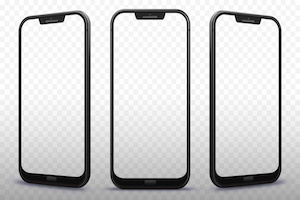The FTC’s lawsuit against Qualcomm is awaiting a verdict, which could have a significant impact of the future of smartphones. Experts for each side have differing view on whether Qualcomm’s policies hurt competition.
Qualcomm is the world’s largest provider of mobile chips. It created the technology that connects phones to cellular networks. Qualcomm makes a significant portion of its revenue from licensing its inventions to cellphone makers with its fee based on the value of each phone.
Qualcomm owns patents that are related to 3G, 4G, and 5G networks, which means that all cellphone makers pay Qualcomm a licensing fee, even if they do not use Qualcomm chips.
The FTC filed a lawsuit against Qualcomm in January 2017, arguing that Qualcomm maintained a monopoly and extracted high royalty fees that weakened competition. Qualcomm has denied all allegations and says that the FTC does not have any evidence of anticompetitive behavior.
The trial was held before Judge Lucy Koh in United States District Court for the Northern District of California.
FTC’s Expert Witness Testimony
The FTC retained Professor Carl Shapiro as an expert witness. Shapiro is an industrial organization economics professor at Haas School of Business at University of California, Berkeley. He formerly held a position in the antitrust division of the Justice Department.
Shapiro analyzed Qualcomm’s market power in CDMA and premium LTE modems during the period of time between 2006-2016. According to Shapiro, three of Qualcomm’s policies gave it the market power to demand supra-FRAND royalties, or royalties that are not fair, reasonable, and non-discriminatory. These three policies were: its “no license, no chips” policy, its incentive payments to phone OEMs, and its refusal to license standard essential patents to rival chip makers.
According to Shapiro, Qualcomm is using its market power and monopoly power to extract an “unusually high amount” for royalties for patents.
Qualcomm’s Expert Witness Testimony
Qualcomm retained Tasneem Chipty as an expert. Chipty is an expert in competition and antitrust economics. Her practice focuses on competition analysis, including market definition, market power, and competitive effects of different types of conduct across a variety of industries. Chipty has previously served on the faculties of The Ohio State University, Brandeis University, and the Massachusetts Institute of Technology, where she taught courses in antitrust and regulation, industrial organization, and econometrics.
Chipty testified that “Qualcomm doesn’t have sufficient market power to coerce OEMs [handset makers] into onerous business terms that would rob them of billions of dollars.” She noted that Qualcomm had cut its chip pricing in response to competitors hitting the market or Intel potentially winning business with Apple. Chipty noted that this behavior may have helped Qualcomm win business, but did not mean that the company was anticompetitive.
Chipty also noted that Qualcomm lost 50 points of market share in premium handsets from 2014 to 2017. Chipty addressed the FTC expert’s testimony, stating, “Shapiro has overstated Qualcomm’s market power.” Chipty opined that there’s no “evidence of consistent and unconstrained market power of the type” that would hurt competition.




